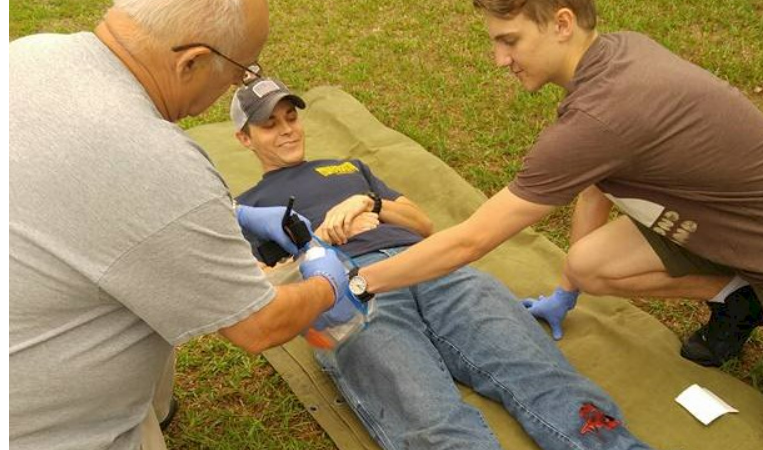This spring, nearly every higher education institution moved its courses online, and every institution forced itself to find ways to make it work. When Sampson Community College made its move to fully online instruction, Information Technology Department Chair, Nathan McKee, saw it as a positive. He realized how much more accessible his program could be by offering all courses online—and will continue that way when the college resumes normal operations.
McKee says over the years, several students would take a few online courses, then find out about face-to-face requirements and be forced to discontinue their studies because of full-time job commitments and other factors. McKee and Information Technology faculty decided that moving to an online format would allow SCC to cater to a wider demographic in general.

Lillie Turlington is a graduate of Wake Forest University but wanted a few ways to improve her resume and gain knowledge about a field with which she had virtually zero familiarity. Initially intimidated, she found the online format conducive to learning and is excited about the opportunities her newfound skills could bring.
“I thought I was ‘bad with computers.’ However, now, 4 weeks into classes, I’ve created Virtual Machines, started coding, and have learned so much about concepts that I didn’t even know existed. The instructors are helpful and respond to my questions quickly,” she commented.
Students like Turlington are exactly who McKee hopes the online program will attract. Those who work full time, are looking to change careers, are located outside of Sampson County, or are looking to add new skills to their resume—like Turlington. In a time when online education has become mandatory, McKee has chosen to embrace the change.
“We have cutting edge technology, but at the same time we have a personal, small-town feel,” McKee shared.

McKee says that small-town feel will remain either way. The department plans to hold weekly lab hours and hold office and tutoring hours virtually. Still, the department has access to state-of-the-art technology that students will want to make use of when possible. Technology like a custom-made Lenovo server designed to crack passwords, a custom-made robot, a search and rescue drone, and other high-quality technology.
“We’re not having face-to-face courses, but we are not giving up on face-to-face interaction. That’s why we’re offering this lab time for those students…” McKee stated.
Students who graduate from the department look forward to careers as computer repair technicians, system administrators, database administrators, and more. However, graduates go on to do other things too. SCC’s Communications Coordinator, Michael Blankenship, says the skills he learned as a student in the SCC IT program help him in his day-to-day work.
“The skills that I learned from the Computer IT program helped me grow into a more technologically competent employee. Using what the program taught me, I’m able to troubleshoot and fix common office issues,” he shared.

Each year, students compete in the National Cyber League Competition, a capture the flag style cybersecurity competition giving students practical challenges to test their knowledge and skill. The IT program also received a certification from the National Center of Academic Excellence (CAE) in Cyber Defense Education in November of 2019. This certification verifies that Sampson Community College meets standards set out by the National Security Agency and the Department of Homeland Security.
The College’s admission agreement with ECU, the Pirate Promise, allows students to transfer to ECU after completing their Information Technology degree at Sampson Community College.
For more information about Information Technology at SCC, contact Nathan McKee at nmckee@sampsoncc.edu, or call 910.592.8081 ext. 7011.
About Sampson Community College: Sampson Community College is a member of the North Carolina Community College System, located in Clinton, NC in Sampson County. The college offers many programs to include two-year degrees, college transfer, continuing education and workforce development options, and early college education.

